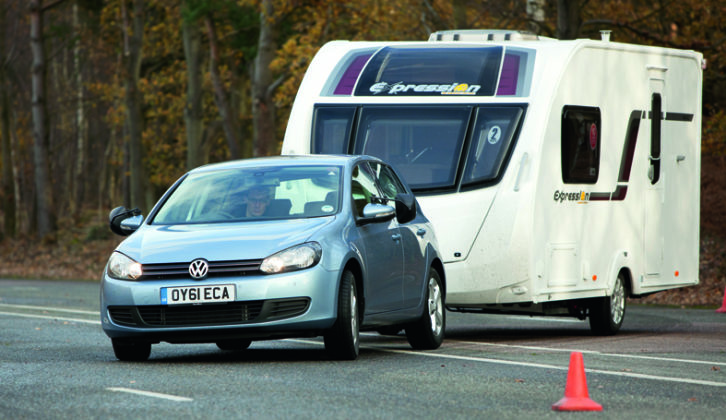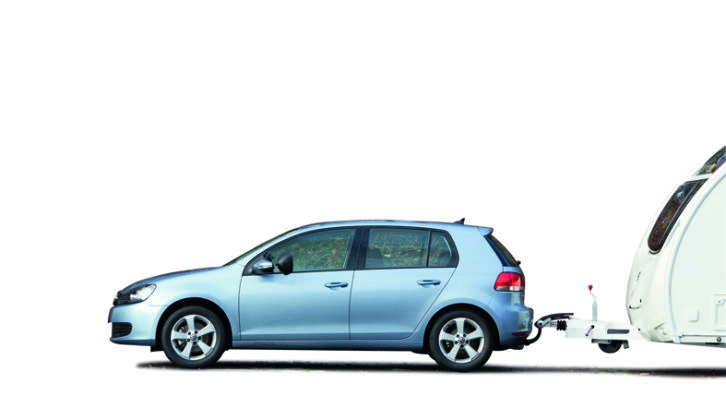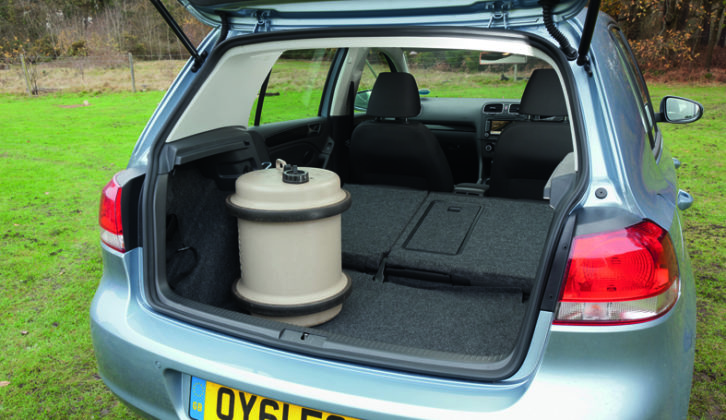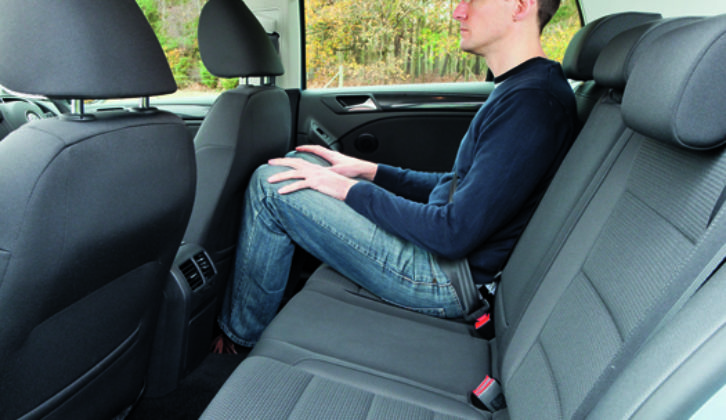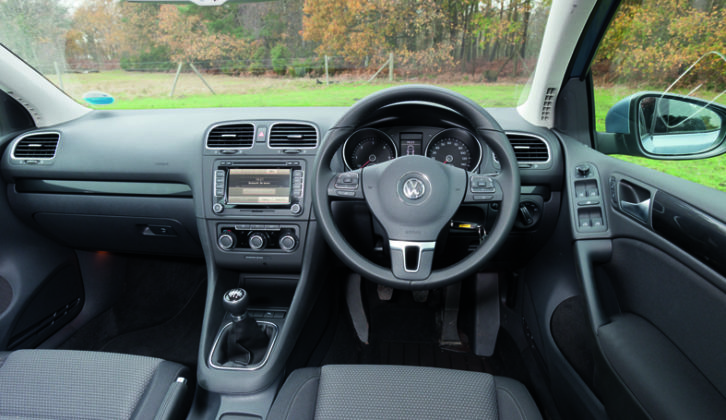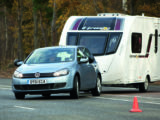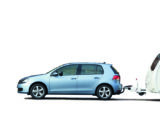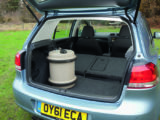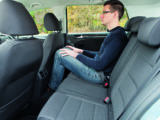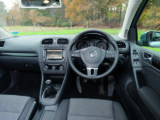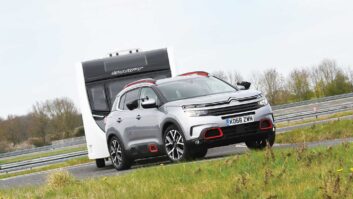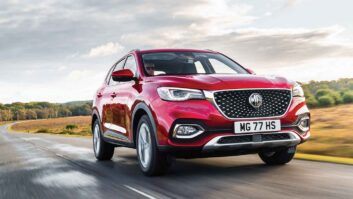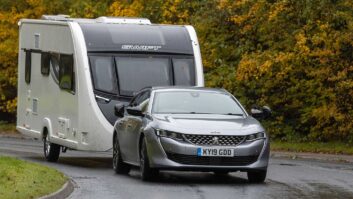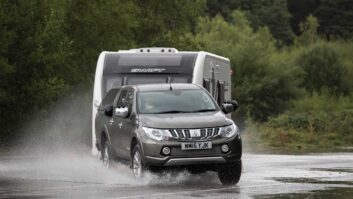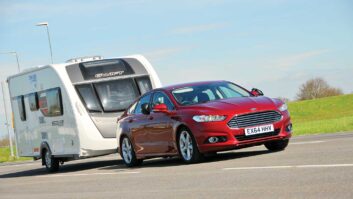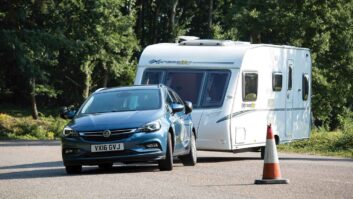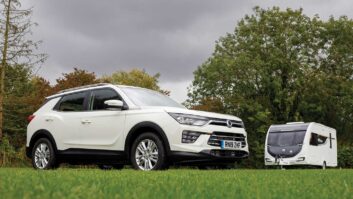With the sixth generation of the iconic Golf, Volkswagen decided it was out with the old and in with the slightly new.
That’s because the car was, in effect a very heavy facelift of its predecessor.
However, the Mk5 was a fine place to start, because it was roomy and comfortable, handled well and felt just right to be in. That didn’t stop VW’s engineers getting their thinking caps on.
So for this iteration, VW sharpened the handling (not at the expense of the supple ride) and made it a whole lot quieter. There were three- and five-door versions available, and after a few months, an estate joined the line-up.
There was a range of engines on offer, from a 1.4-litre petrol to the 2.0-litre turbodiesel that we focus on here. All were said to be more economical (although the dieselgate scandal has since hit the headlines), and emitted fewer noxious fumes.
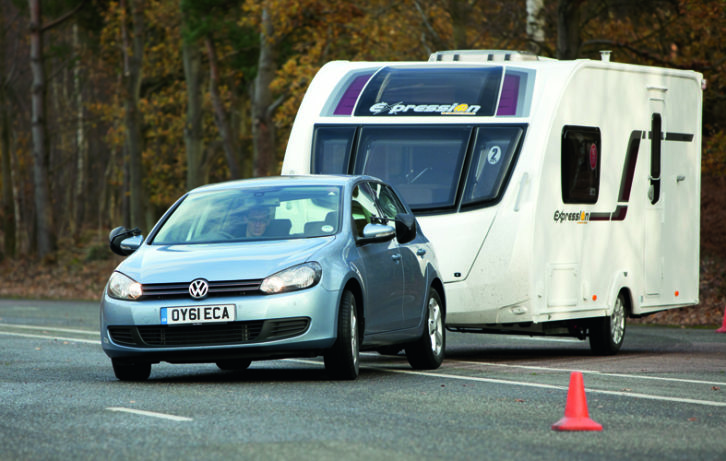
In 2009 the high-performance GTI model was released, with its 207bhp turbocharged 2.0-litre petrol engine. Later, a slightly softer diesel hot hatch 2.0 GTD was launched, offering thrills and thrift. And, come 2010, the four-wheel drive 267bhp Golf R appeared in both five-door and estate forms.
Initially, there were three levels of trim: S, SE and GT, and all cars had either a five- or six-speed manual gearbox as standard, with a twin-clutch DSG available as an option.
Model history
There were many Golf models available, but the best one by far was the 2.0 TDI 140 Match.
Match trim appeared in 2010 to replace the SE, but for just £300 extra, it added more than £1600 of equipment. So while the SE came well kitted with climate control, cruise control, ESP and a multidevice interface, Match also added DAB radio, Bluetooth, alloy wheels, parking sensors front and rear, and a leather multifunction steering wheel. Heady stuff.
As a solo steer, the Golf is brilliant. It handles with real nimbleness and manages to smooth away all but the very worst of the UK’s crumbling road scars. The steering, meanwhile, feels natural at speed and light enough during parking manoeuvres.
Previous-generation VW diesels were renowned for the noisy and uncouth way they went about their business, but that isn’t the case with the Mk6 Golf: the engine does everything you need it to do, without creating any fuss.
All of these attributes helped the Golf to be a superb tow car, too. Indeed, it was so good that we voted it the winner in the smallest weight category of the Tow Car Awards for no fewer than four years in a row, from 2009 to 2012 inclusive.
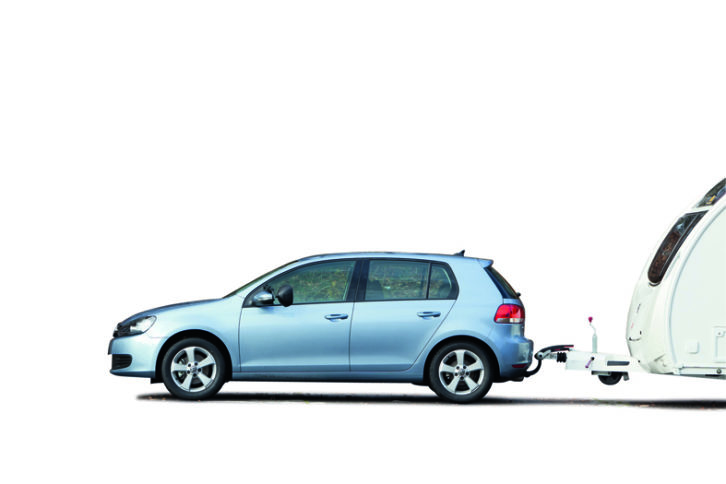
To quote from 2009: “Like the head boy who’s also captain of the football team, the Golf does almost everything well and nothing badly”.
Even towing a heavy trailer, it accelerates with reasonable verve, and it’ll hold a steady speed on a flat motorway with no problems. The occasional downchange into fifth might be needed on motorway slopes.
Still, the strong brakes bring everything to a controlled halt in a fairly short timeframe, and hill starts pose no difficulties. Even violent lane changes cause no trouble.
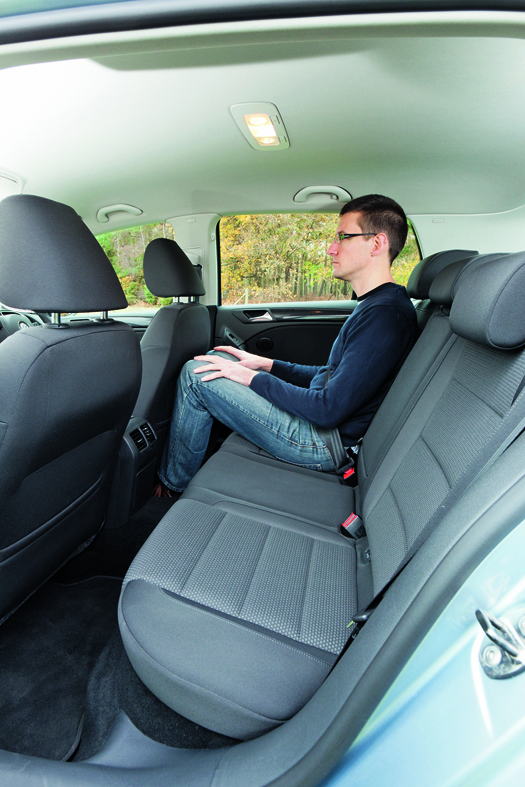
There’s a reasonable amount of space both up front and in the rear-seat area. In the back, two people will be perfectly comfortable, and even three won’t have to be on too intimate terms. Behind lies a boot that starts off at a fair 350 litres, rising to 1305 litres with the rear seats folded down. If there’s one slight gripe, it’s that the seats don’t fold down completely flat, leaving a step in the boot floor.
Trouble spots
There are a few things to keep an eye out for in this generation of Golf. For a start, the exhaust particulate filter can be prone to clogging with soot, especially if the car has lived a life doing short trips in town. A blast on the motorway allows the filter to complete a full heat cycle and usually clears it.
If the car has a DSG gearbox, make sure it’s working properly, with no untoward noises. These gearboxes can be a bit fragile, and fixing them is expensive.
Bear in mind, too, that the diesel engine covered here was subject to the dieselgate tweaks, so make sure the remedial fix has been carried out.
There have been reports of water collection in the bottom of the doors, especially when the car is parked on a slope.
This generation of Golf has been subject to five recalls. The first was for a fault with the ESP system, the second, a possible leak in the high-pressure fuel system. Some DSG models were subject to a faulty clutch-temperature sensor, which could cause loss of drive. Other recalls involved the starter motor and camshaft adjuster.
It’s fair to say this Golf hasn’t been the last word in reliability, so make sure you get a proper inspection carried out.
Verdict
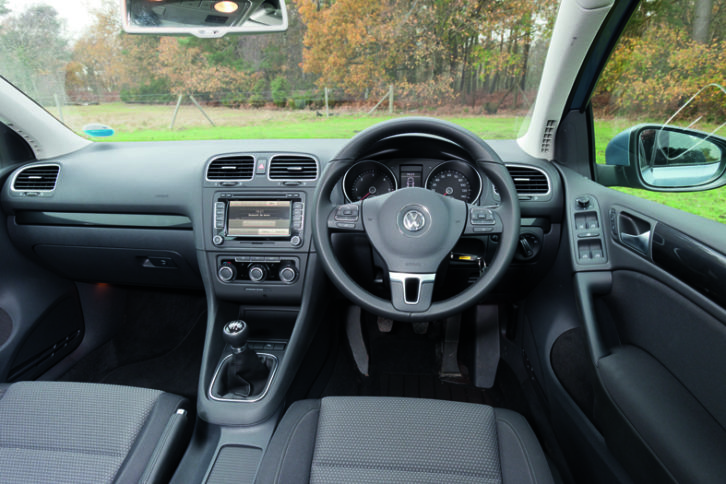
As long as you don’t have a huge trailer, there are few finer small tow cars than the Mk6 Golf. It’s utterly unfazed when hitched up, remaining stable, quiet and comfortable on every journey, and it makes a relaxing and easygoing companion when driven solo. It feels good inside and despite all the wranglings, it’s still pretty economical.
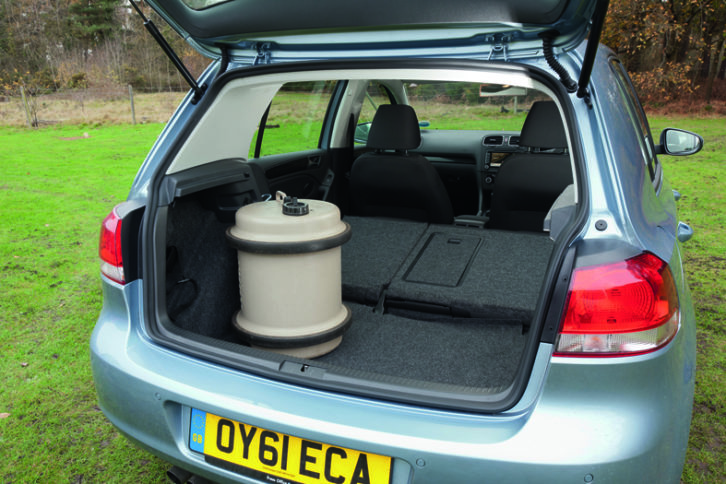
However, it has suffered some reliability gremlins, and some examples lead pretty hard lives, so a thorough mechanical check would be money well spent.
Volkswagen Golf Mk6 – need to know
How much? £1600-£18,000
There are Mk6 Golfs around for under £2000, but they’ll have a mileage akin to that of a passenger jet and are likely to have the 1.4 petrol or 1.6 TDI engine, neither of which is ideal for towing.
However, if you can stretch to £2500, you’ll be in line for a 2.0 TDI, albeit still with a high mileage.
A budget of £5000 will net you a later high-spec car, with a less astronomical mileage, and if you can shell out £9000, you’ll get a late example with a low(ish) mileage and good history.
What will it tow?
- Kerbweight: 1351kg
- 85% match: 1148kg
- Towing limit: 1500kg
- Noseweight limit: 75kg
How much is a towball?
- Witter flange towbar: £122.76
- Witter detachable towbar: £231.81
- Fitting extra (from pfjones.co.uk)
What about servicing?
- Interim service: £76.88
- Full service: £116.01
- (Prices supplied by Servicing Stop: 0844 324 5262)
Top tug – 2.0 TDI 140 Match
Best combination of economy, affordability and spec, and the 2.0-litre engine makes short work of towing. Just check it carefully.
Barge pole – 1.4 S
This motor’s 79bhp is enough if you don’t want to travel out of town on fast roads, which makes it the anti-tow car Best avoided.
If you liked this… READ THESE:
Used Towcar Test: Vauxhall Insignia Sports Tourer
If you’ve enjoyed reading this article, why not get the latest news, reviews and features delivered direct to your door or inbox every month. Take advantage of our brilliant Practical Caravan magazine SUBSCRIBERS’ OFFER and SIGN UP TO OUR NEWSLETTER for regular weekly updates on all things caravan related.
The Golf was so good that we voted it the winner in the smallest weight category of the Tow Car Awards for no fewer than four years in a row
